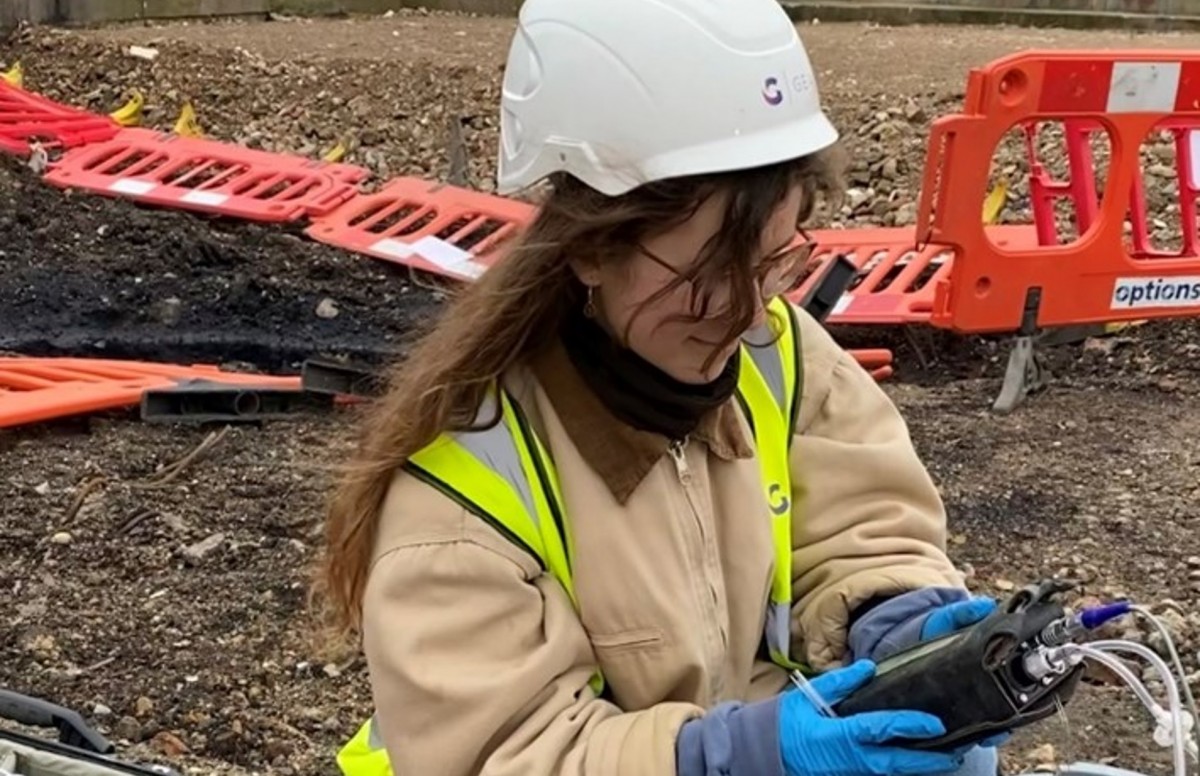Geotheta - An Overview
Geotheta - An Overview
Blog Article
The 8-Second Trick For Geotheta
Table of ContentsThe Single Strategy To Use For GeothetaThe Geotheta IdeasSome Known Incorrect Statements About Geotheta The Geotheta StatementsThe 5-Minute Rule for Geotheta

They perform site examinations, gather examples, execute laboratory examinations, and examine information to review the suitability of the ground for construction jobs - Geo Tech Engineer. Based on their searchings for, geotechnical engineers supply suggestions for structure design, incline stability, preserving structures, and mitigation of geotechnical hazards. They work together with other experts, such as designers, architectural engineers, and construction teams, to guarantee that geotechnical considerations are integrated right into the total project layout and application
By examining the behavior and homes of dirt and rock, they can determine prospective geotechnical dangers such as landslides, dirt negotiation, or incline instability. Their proficiency assists prevent failures or crashes that might jeopardize lives and residential property. Below are some comprehensive duties and responsibilities of a geotechnical engineer: Site Examination: Geotechnical engineers conduct website investigations to gather data on subsurface conditions.
They interpret the information to comprehend the buildings and habits of the soil and rock, including their strength, leaks in the structure, compaction features, and groundwater problems. Geotechnical Evaluation and Design: Geotechnical designers evaluate the data gathered during website examinations to analyze the stability and suitability of the website for building tasks. They carry out geotechnical calculations and modeling to evaluate factors such as bearing ability, settlement, incline stability, side planet stress, and groundwater flow.
Unknown Facts About Geotheta
Structure Layout: Geotechnical engineers play a crucial duty in making foundations that can securely sustain the desired structure. They assess the soil conditions and tons demands to establish the ideal foundation type, such as superficial structures (e.g., footings), deep foundations (e.g (https://www.anyflip.com/homepage/zuylo)., heaps), or specialized strategies like soil improvement. They consider factors such as settlement limitations, bearing capacity, and soil-structure interaction to create optimum structure layouts
They examine building strategies, monitor website activities, and carry out area assessments to confirm that the design recommendations are adhered to. If unexpected geotechnical issues emerge, they analyze the circumstance and give referrals for removal or changes to the design. Danger Assessment and Reduction: Geotechnical engineers examine geotechnical threats and dangers associated with the job website, such as landslides, liquefaction, or soil erosion.

Partnership and Communication: Geotechnical engineers work very closely with other specialists involved in a job, such as architects, structural designers, and building and construction groups. Reliable communication and partnership are important to integrate geotechnical considerations into the overall project layout and building and construction process. Geotechnical designers provide technical know-how, solution inquiries, and guarantee that geotechnical needs are satisfied.
The Main Principles Of Geotheta
Right here are some kinds of geotechnical engineers: Foundation Engineer: Foundation designers concentrate on creating and examining foundations for frameworks. They evaluate the dirt conditions, load requirements, and site characteristics to determine the most suitable foundation type and layout, such as shallow structures, deep structures, or specialized strategies like pile foundations.
They review the factors influencing slope stability, such as soil properties, groundwater conditions, and slope geometry, and create strategies to protect check my site against slope failings and mitigate risks. Earthquake Engineer: Earthquake designers specialize in examining and making structures to stand up to seismic forces. They assess the seismic threat of a site, review soil liquefaction possibility, and create seismic design standards to make sure the safety and resilience of frameworks during earthquakes.
They perform field screening, collect samples, and analyze the gathered data to define the soil homes, geologic developments, and groundwater problems at a site. Geotechnical Instrumentation Designer: Geotechnical instrumentation designers concentrate on monitoring and measuring the habits of soil, rock, and structures. They mount and keep instrumentation systems that check aspects such as dirt settlement, groundwater levels, incline movements, and architectural displacements to assess efficiency and supply very early warnings of possible concerns.
The Facts About Geotheta Revealed
They perform examinations such as triaxial tests, consolidation examinations, straight shear examinations, and leaks in the structure tests to collect data for geotechnical evaluation and design. Geosynthetics Engineer: Geosynthetics engineers concentrate on the layout and application of geosynthetic materials, such as geotextiles, geogrids, and geomembranes. They utilize these materials to enhance dirt security, reinforce slopes, supply drain services, and control erosion.
They tend to be investigative people, which means they're intellectual, introspective, and curious. They are curious, methodical, reasonable, logical, and logical. Some of them are additionally social, implying they're kind, generous, cooperative, person, caring, helpful, empathetic, skillful, and friendly - Geo Tech Engineer.
In the workplace atmosphere, geotechnical engineers use specialized software application devices to perform estimations, produce layouts, and examine data. They prepare records, evaluation project specifications, connect with customers and employee, and coordinate job tasks. The office setting supplies a favorable atmosphere for research study, evaluation, and cooperation with various other specialists included in the task.
9 Simple Techniques For Geotheta
They frequently go to job websites to perform website investigations, analyze geotechnical problems, and collect data for evaluation. These visits include traveling to different areas, in some cases in remote or tough surfaces. Geotechnical engineers may carry out soil tasting, conduct tests, and monitor building tasks to guarantee that the geotechnical facets of the project are being implemented properly.
Geotechnical designers likewise function in specialized geotechnical research laboratories. Geotechnical laboratory engineers work extensively in these settings, managing testing tools, running instruments, and taping information.
Report this page